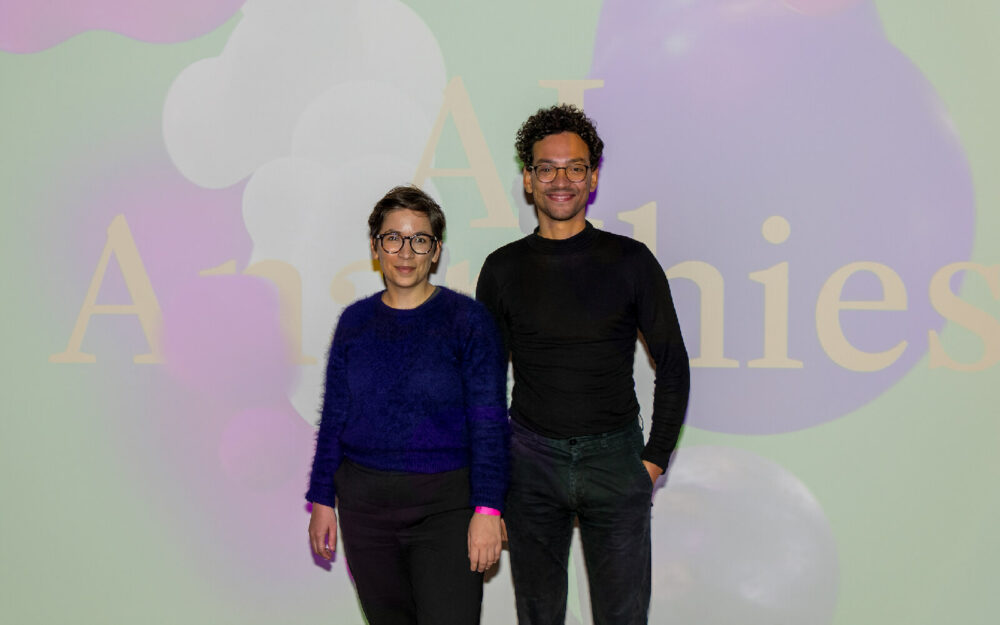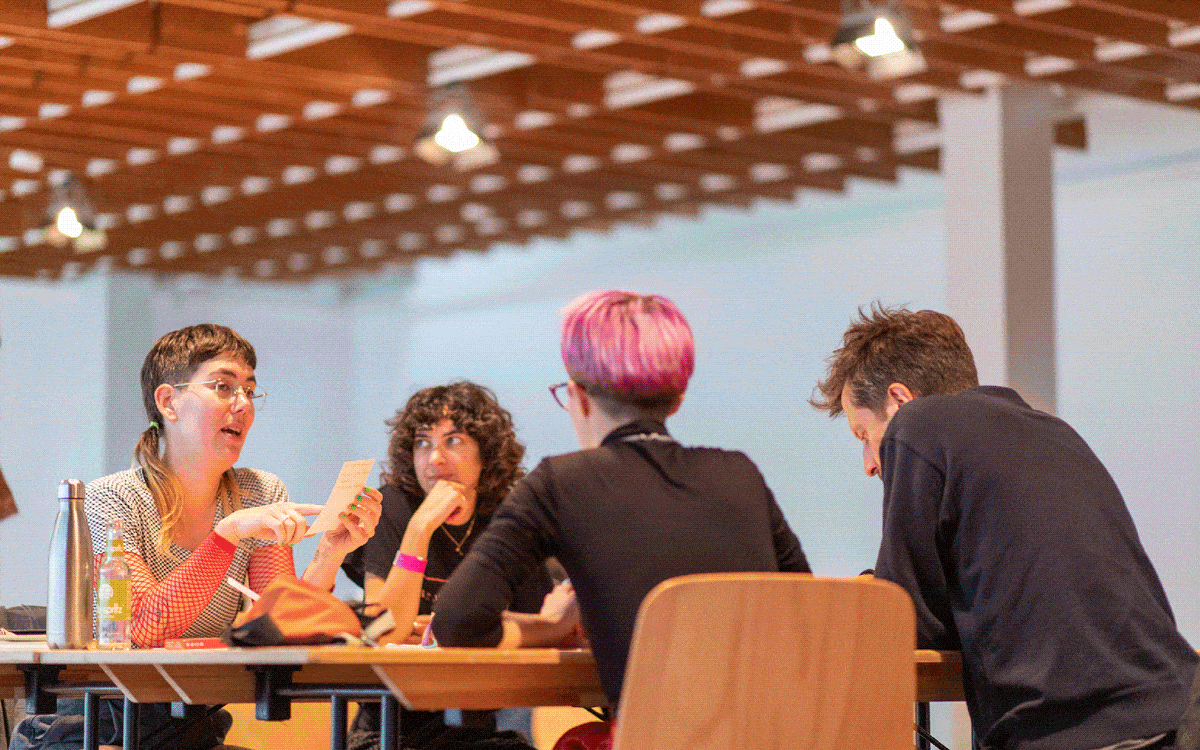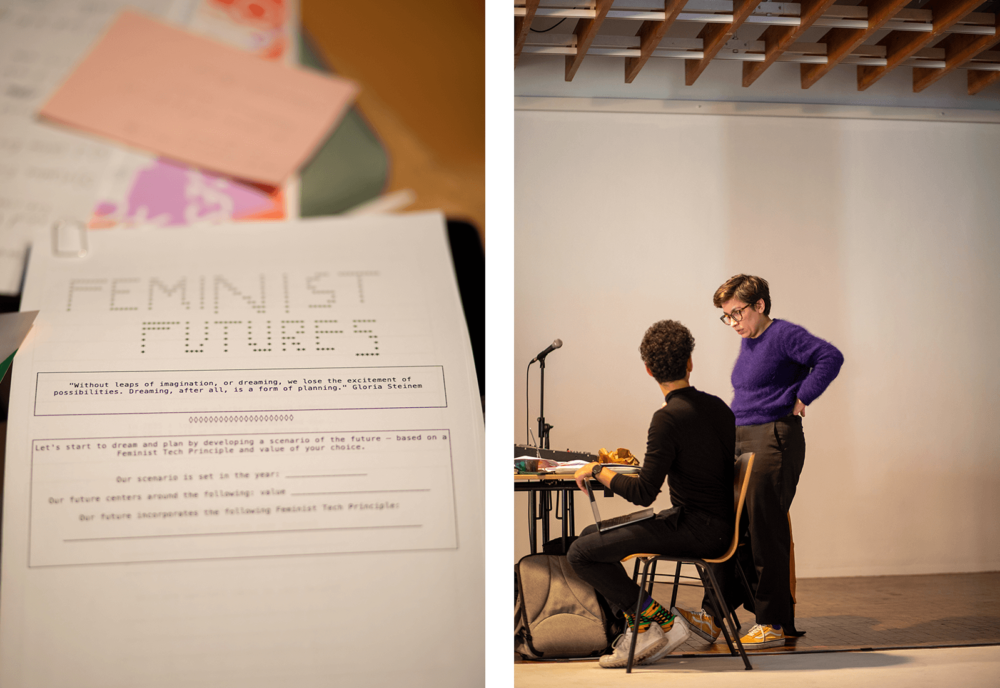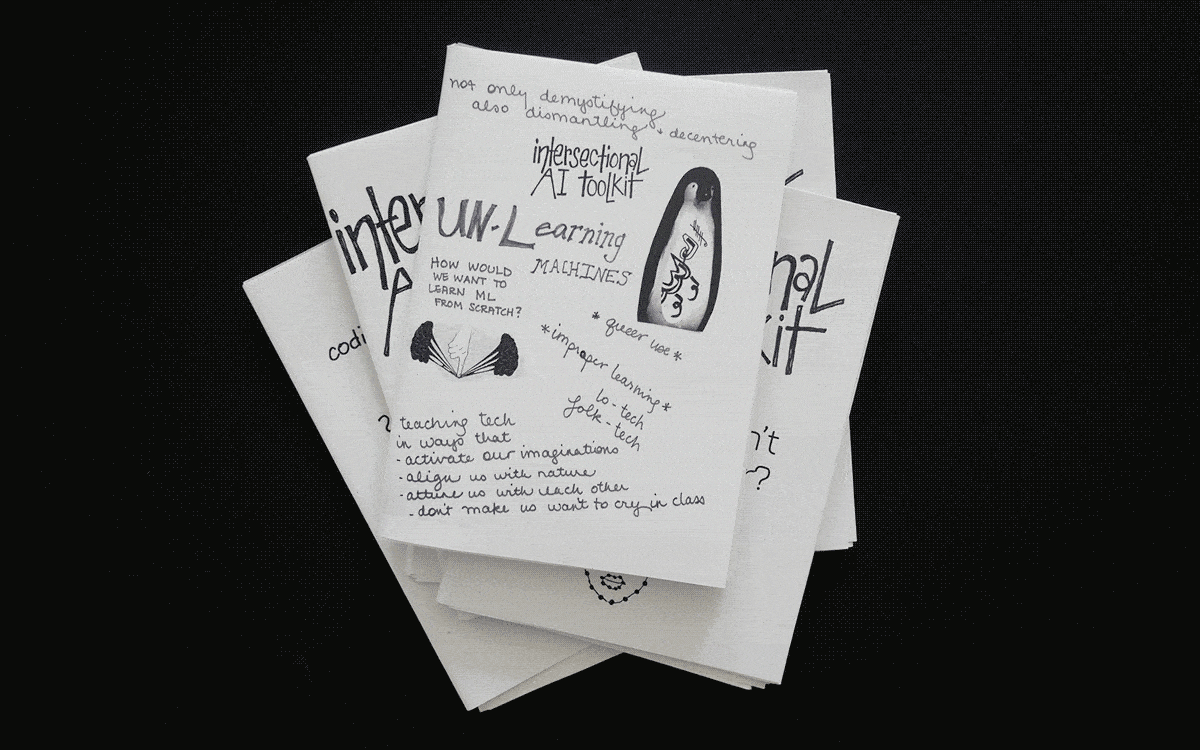AI Anarchies: Feminist Tech Futures
Workshop
Feminist Tech Futures
Instructors:
SUPERRR Lab (Julia Kloiber & Quincey Stumptner)

Profile:
Julia Kloiber
Julia Kloiber is the managing director and co-founder of the feminist organization SUPERRR Lab. She has launched numerous initiatives and organisations with a focus on public interest tech and digital infrastructures including Prototype Fund, a public open source fund, and the network Code for Germany. Through her work, Kloiber explores just and fair digital futures.
Profile:
Quincey Stumptner
Quincey Stumptner has a background in philosophy, politics and economics and researched on data ethics and the ethics of policy making at the London School of Economics and Political Science. At SUPERRR Lab he works on intersectional technology foresight and connects SUPERRR’s research to actors from policy and politics.
Brief:
Using a living collection of approaches (combining more than 25 different global perspectives) Autumn School participants will take a holistic view of digitization and look at it in terms of patterns of discrimination that are intersectional in impact. The methodology used in this workshop will help participants draft preferable future scenarios and identify what actions are needed to make these visions a reality.
Soundbite:
“Current digitization narratives are economic in nature and serve the interests of corporations over societies and minorities. By contrast, Feminist Tech Policy takes a holistic view to examine digitisation in terms of intersectional patterns of discrimination.”
Julia Kloiber & Quincey Stumptner, on SUPERRR Lab’s first principles
Soundbite:
“We’re so busy reacting to our current conditions that there is very little time to go beyond the here and now. That’s why we work on foresight methodologies.”
Julia Kloiber & Quincey Stumptner, on the need for—and process of—imagining (feminist) futures
Process:
Divided into four groups, Autumn School participants are tasked with three exercises to get the foresight juices flowing.
Draw a card from the Feminist Tech Card Deck and discuss the question on it in relation to your Feminist Tech principle of choice.
Write down one value for the future, then interview your collaborators about its importance. Also: make friendship bracelets for each other while explaining your values.
Select a value and a principle and create a future scenario around it.
Among the values discussed were freedom of movement, sustainability over growth, doubt, everything for everyone, and adaptability.
Photography: Silke Briel
Among the values discussed were freedom of movement, sustainability over growth, doubt, everything for everyone, and adaptability.
Photography: Silke Briel
Soundbite:
“We developed the Feminist Tech principles together with activists, educators, writers, technologists, and designers. To make them more tangible and accessible to a wider audience, we turn to storytelling. Using the principles as a starting point, we invite people to develop narratives that envision more just technological futures around them.”
Julia Kloiber & Quincey Stumptner, sparking imagination through participation
Precedent:
Putting theory into action, SUPERRR Lab took their Feminist Tech principles, a set of guidelines for tech policy-making and technology creation, and translated them into an idea-generating card set. “The principles take a critical lens to tech,” states the SUPERRR Lab website, “observing and addressing the power structures behind the creation, regulation and use of technology, and offering a framework for creating new, emancipatory structures.” The Feminist Tech Card Deck is used in the workshop to iterate ideas and brainstorm the progressive futures workshopped across the groups. In addition to putting the core twelve generative principles into play, the deck also contains blank cards—so that users might add their own.
Takeaway:
It’s important to remember that by asking a question you establish the context within which you are thinking about the issue. Instead, feminist organizing can start from a place of challenging definitions in order to allow people to generate their own questions rather than providing questions for others to use as starting points.
Soundbite:
“I joined a conversation about maintenance and repair. Discussing the vertical structures of production, planned obsolescence, and what we mean by sustainability. We concluded that maybe it isn’t products that should be made sustainable but the production process.”
Miche O’Higgins, workshop participant and HOLO contributor, summarizing her group’s internal discussion
Process:
The near and far futures that emerge from the four groups range from biosphere dwellers, to decentralized communities, to radical transparency. One group, for example, imagined the Papaya Republic, a degrowth utopia set in the year 3000 that guarantees “coconut and papaya for everyone:”
The Papaya Republic in a nutshell:
Set in Colombia in a degrowth future, papayas are greatly desired but available in limited quantities
Europe doing reparation work in global rebalancing
Citizens allowed one long-distance flight every five years, ‘papaya pilgrimage’ becomes a ritual
Papaya access metred out based on (sustainable) availability
Papaya Republic replaces the Banana Republic
Photography: Silke Briel
The Papaya Republic in a nutshell:
Photography: Silke Briel
Soundbite:
“In the year 3000, the Papaya Republic has replaced the Banana Republic. Europe is doing reparations work and Colombia has become home to a thriving degrowth economy, bountiful commons, and a global destination for papaya pilgrimages.”
Group Papaya Republic, sharing the fruits of their labour








